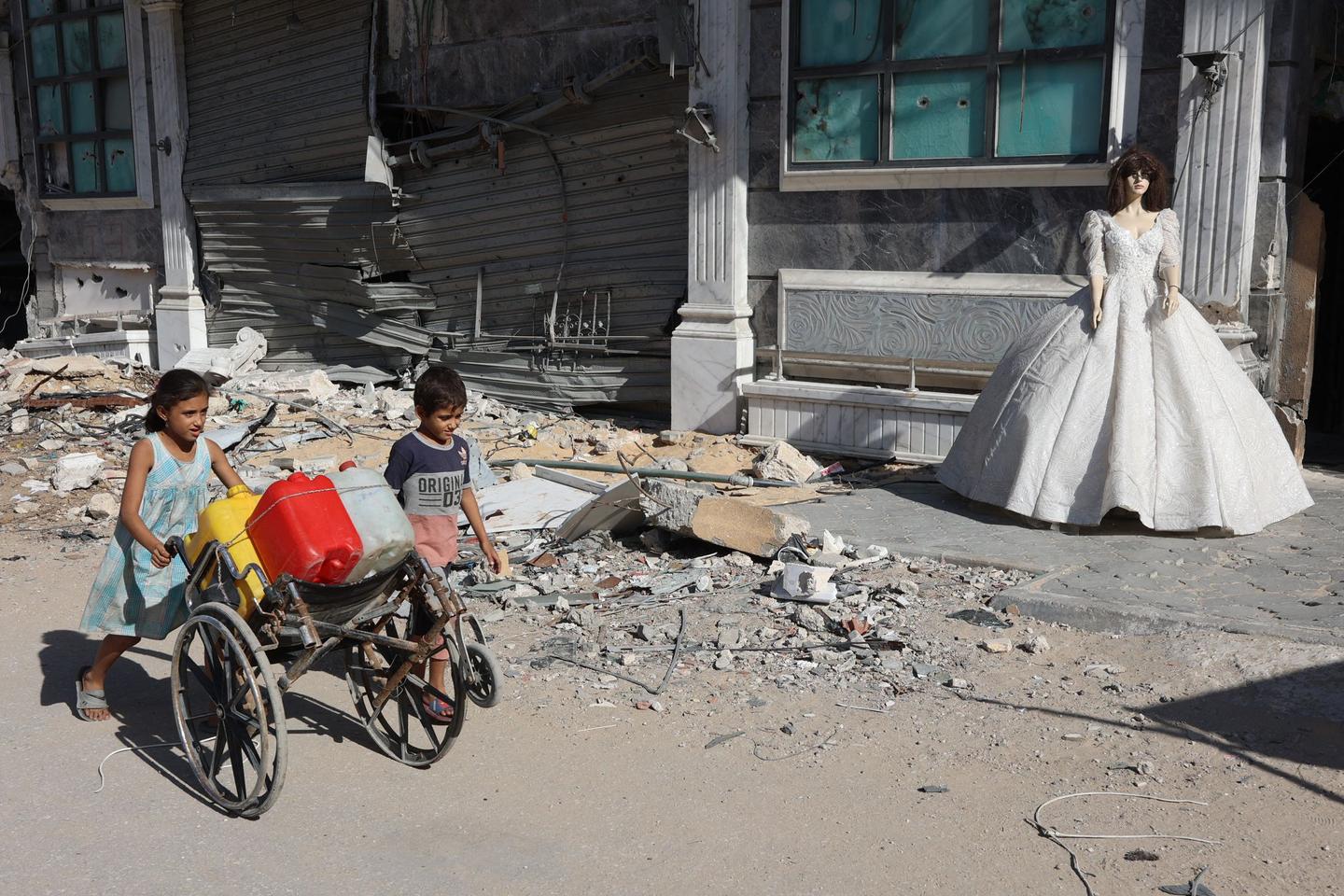


A curious paradox: Gaza is everywhere and nowhere at once. Reading the daily death toll has become as commonplace as commenting on autumn rains. Meteorological phenomenon, atmospheric violence: Rain is normal, and so too is dying – dismembered, tortured, or starved – by the Israelis in Gaza. We dreaded this moment, but we knew it was inevitable because the mechanisms of racism are so predictable: People have become used to it. Were the Israelis counting on this – on the passage of time softening the horror, facilitating consent, and normalizing the unthinkable? In any case, the crisis no longer arouses the same interest. Gaza is a field of death, Palestine is mutilated: This is now an accepted normalcy, not an emergency. A hazard, not crimes against humanity. A war, not atrocities.
In France as elsewhere, controversies divert attention. Every day brings its share of petty scandals, with French officials expressing indignation at the statements of so-and-so, hurling ill-defined accusations and expressing a vague moral indignation that brooks no challenge. All too often, this serves to silence those who advocate Palestinian survival and freedom. One might have hoped that they would express at least as much fervent indignation for the tens of thousands of Palestinian victims.
As for the journalistic automatisms found everywhere – passive voice, vague verbs, dehistoricization, euphemisms – they create ambiguities, depersonalize atrocities and diminish the reality of apartheid, occupation and colonization. One might genuinely wonder who is killing the Palestinians, for what purpose, and how long this killing has been ongoing.
The testimonies of citizens, journalists, doctors and the few foreigners who manage to enter the devastated enclave underline just how flawed this discursive landscape is. They reveal that hell has been here for almost a year. Even the soldiers describe it, because they are proud to have created this hell. All this is happening despite the total media blackout imposed by Israel, which ensures that no foreign journalist can enter Gaza unless escorted by the army.
Voluntary resignations
This has been a crude but very effective way of preventing the creation of direct images of its crimes – of course, the Palestinians produce them every hour, but Westerners never fully believe what we say, always suspect us of lies and inaccuracies. This fact, which conditions the way news does or does not circulate from Gaza, should be mentioned in every article in order to contextualize the sources, their absence or their reliability. Yet it is only occasionally, incidentally, mentioned, never as the structuring element of information on Israel-Palestine.
You have 56.76% of this article left to read. The rest is for subscribers only.
